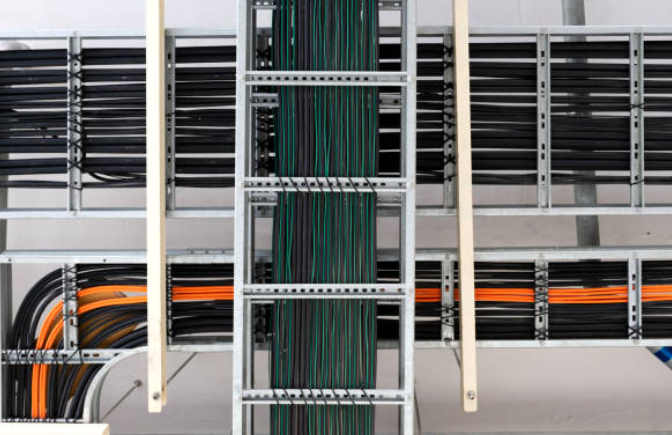
Posted on Tuesday, October 1, 2024
Roll forming machines play a crucial role in the electrical installation industry by producing metal components used for cable management, conduit systems, and electrical enclosures.
Roll forming machines are widely used to manufacture metal cable trays and ladder systems that provide support for electrical wiring in commercial, industrial, and residential buildings. These systems keep cables organized and protected, while allowing easy access for maintenance.
Electrical conduits and channels protect and route electrical wiring, often made of steel or aluminum. Roll forming machines efficiently produce these profiles in continuous lengths, ensuring precision and consistency, while offering customization for different sizes and types.
Roll forming technology is used to produce metal enclosures that house electrical equipment, protecting it from environmental factors such as moisture, dust, and physical damage. These enclosures can range from small junction boxes to larger cabinets for industrial installations.
In electrical systems, busbars and mounting rails are essential for distributing power within switchboards and control panels. Roll forming machines can quickly produce these components, often from copper or aluminum, with the strength and durability needed for reliable power distribution.
Roll forming machines offer the flexibility to create custom profiles, allowing manufacturers to design unique components for specialized electrical installations. This is particularly useful for projects that require bespoke cable management solutions or specific enclosure designs.
By utilizing roll forming machines, manufacturers in the electrical installation industry can produce high-quality, durable components that ensure safety and efficiency in various types of projects.

Used Purlin Roll Forming Machines for Sale Worldwide
Posted on Sunday, January 25, 2026
Pre-Owned Roll Forming Machines for Purlin & Structural Steel Profiles

Used Roof Panel Roll Forming Machines for Sale Worldwide
Posted on Sunday, January 25, 2026
Pre-Owned Roll Forming Machines for Roofing Panel Production

Used Roll Forming Machines for Sale Worldwide
Posted on Tuesday, January 20, 2026
Pre-Owned Roll Forming Machines with Inspection, Verification & Global Support

Steel Coil Supply for Roll Forming Machines Worldwide
Posted on Tuesday, January 20, 2026
Reliable Steel Coil Supply for Roll Forming, Fabrication & Manufacturing Applications
Copyright 2026 © Machine Matcher.